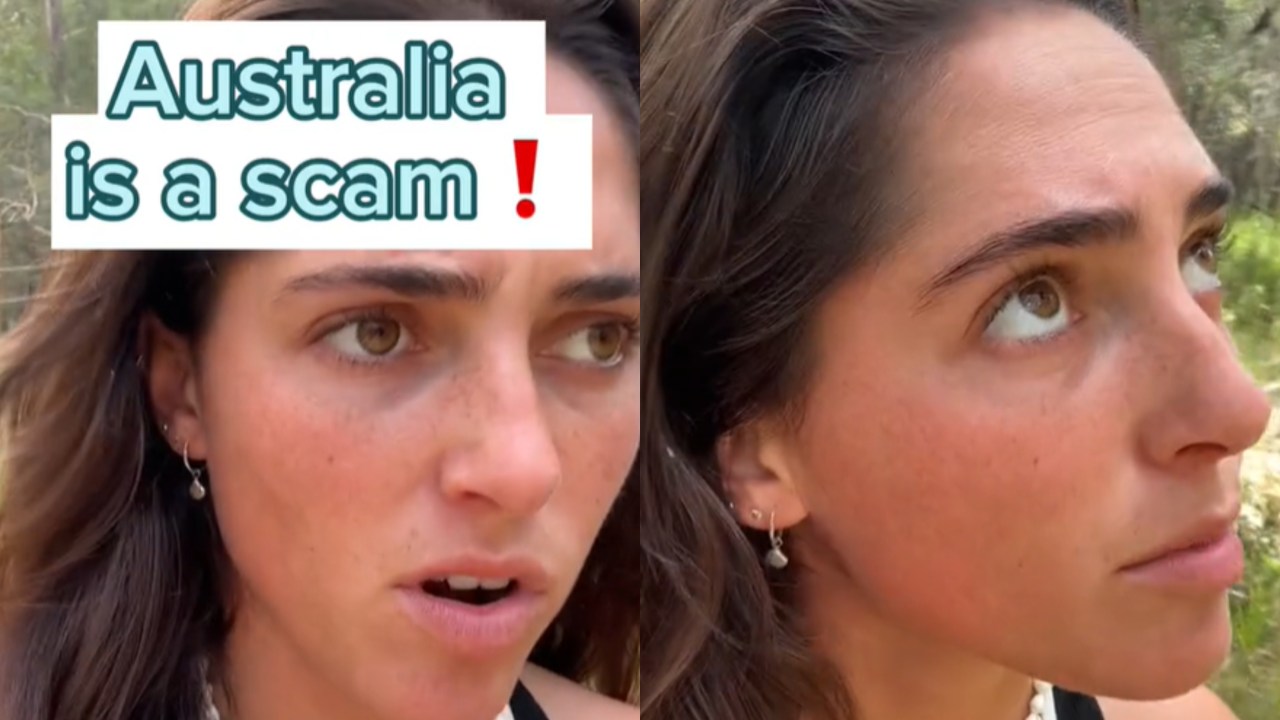A young Brit has left people baffled after she claimed Australia was “scamming” expats because she had not yet seen a certain native animal in her six month stint down under.
It’s been a difficult year for many, but millions of Australians across the nation have paused to celebrate Christmas.
The spirit of giving was felt right across the country from churches and charities to living rooms, where children delighted in their presents from the Big Man in Red.
In Bondi, a sea of red Santa hats filled the sand as thousands flocked to Australia’s most famous beach to celebrate the “Australian way”.
British and Irish backpackers and expats welcomed the change from their usual celebrations.
This Christmas also marked the 48th year of Mission Australia’s Christmas lunch which provides joy and hope to those doing it tough.
About 1,500 people and more than 300 volunteers turned up for Australia’s largest lunch of its kind on Christmas Day.
Ella Wilson, 21, was hiking in Tewantin National Park in Queensland last month when made the wild claim in a video uploaded to social media platform TikTok and it has since gone viral.
The holidaymaker expressed outrage she had not seen the native Australian icon after she was advised the Sunshine Coast’s hiking location was home to 300 koalas.
The holidaymaker expressed outraged she had not seen the native Australian icon after she was advised the Sunshine Coast’s hiking location was home to 300 koalas. Picture: @ellatravellife on TikTok
A British expat has bizarrely accused Australia of “scamming” its travellers after she had not seen a single wild koala since moving down under six months ago. Picture: @ellatravellife on TikTok
“Australia is a scam. Do not come,” she said.
“I was told, in this location I’m in right now, that there’s over 300 koalas that live here.”
The solo traveller complained of neck pain after she had scoured the bushland’s pebbly path and treetops for more than hour with no koala in sight.
“I’ve been walking for over an hour, looking in every single tree, my neck in aching,” she said.
The Brit continued by saying she simply refused to believe the native Australian marsupial existed down under.
“I just don’t believe they live here,” she said.
“Where are they at? Absolutely nowhere.”
Ther 21-year-old moved to scold all signs alerting people to possible Koala sightings as she reiterated the so-called scam.
“I have been in Australia for six months now and I’ve not seen a single one, literally the only reason I came here, and all of the beware of Koala signs can absolutely do one,” she said.
“Sorry, have you ever seen a Koala crossing the road, anyone? No.”
“It’s a scam and they don’t exist.”
WWF on its website noted Koalas, scientifically known as Phascolarctos cinereus, were in 2022 listed as endangered in Qld, NSW and the ACT. Picture: News Corp.
The video, which has attracted almost 100,000 views in a month, was quickly flooded by comments humouring Ella’s unusual remarks.
“It’s also an Urban Myth that Australia has poisonous snakes! The Brown snakes are so friendly next time you see one pick it up,” one person said.
‘We were warned you were coming to Australia, so we hid all the koalas. Be on the lookout for drop bears though,” said another.
Seemingly taking offence to the tourist’s digs, one person adviser her to, “Pack ya bag then”.
WWF on its website noted Koalas, scientifically known as Phascolarctos cinereus, were in 2022 listed as endangered in Qld, NSW and the ACT.
“Historically, they were heavily hunted for their fur, leading to significant population declines in the 1900s,” the wilderness preservation organisation said.
“While they’re no longer hunted, koalas now face an ever-growing number of threats – from deforestation for agricultural and urban developments to the spread of the deadly koala Chlamydia disease, traffic strikes and dog attacks.”
“With their round bodies, large fluffy ears and distinctive spoon-shaped noses, koalas are not only loved around the world but treasured symbols of Australia.”

